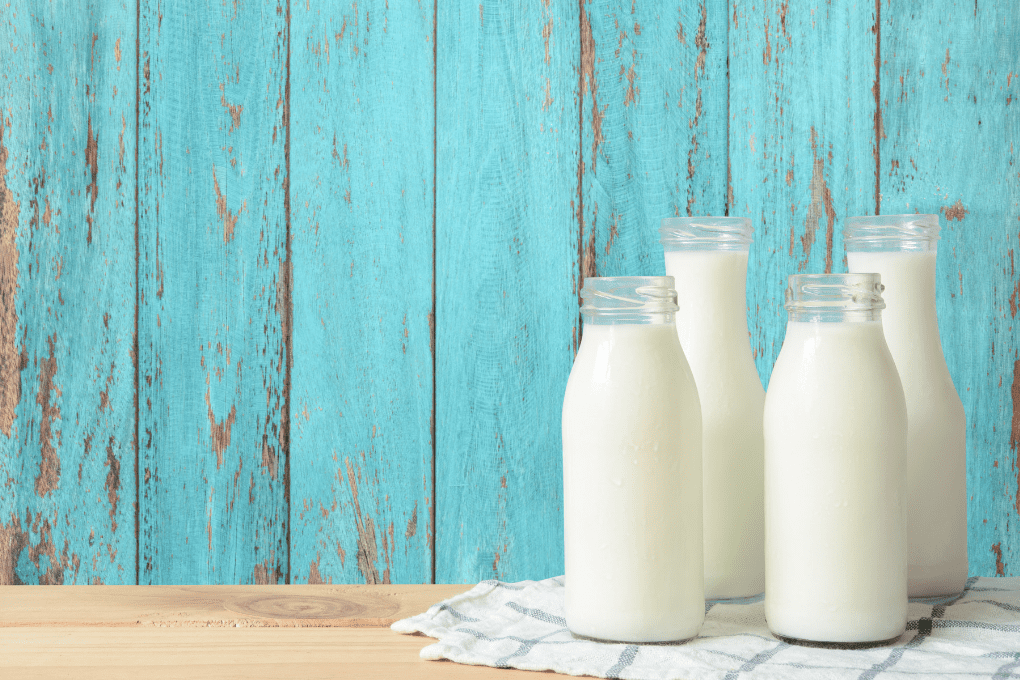
The dairy case used to be simple: whole, 2%, 1%, skim, and flavored milk. Now there’s organic milk, lactose-free milk, plus plant-based alternatives like almond, coconut, soy, rice, and newest player – oat “milk”.
With so many options available in the dairy case, how do you evaluate your choices and make the best decision for you and your family?
Even though cow’s milk and plant-based alternatives sit side-by-side in the dairy case, it’s important to know that they are not created equal.
This chart compares an 8-oz. glass of cow’s milk to soy, almond, coconut, and rice “milks”. You can see how calories and nutrients stack up, which vitamins and minerals are naturally occurring, and how they compare in price.
In this blog post, we’ll take a closer look at 7 distinct advantages cow’s milk has over plant-based alternatives.
Cow’s milk…
1) is naturally nutrient-rich
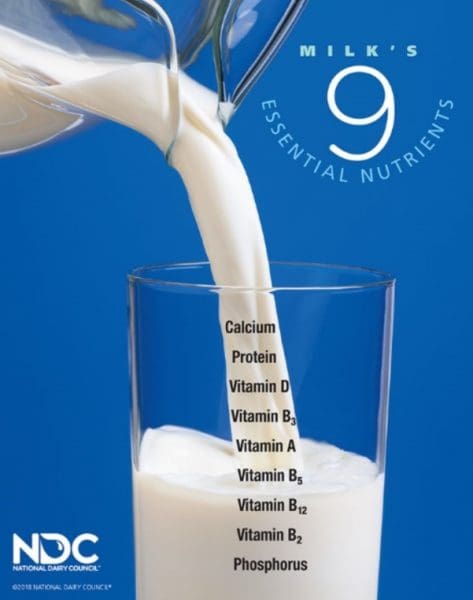
Cow’s milk naturally contains 9 essential nutrients in the form of calcium, phosphorus, protein, and vitamins A, D, B12, pantothenic acid, riboflavin and niacin. In addition to milk’s unique package of essential nutrients, its naturally occurring form of calcium is more readily absorbed by our bodies to help build bones. This is not always true of the various forms of calcium that may be used to fortify plant-based alternatives. Many milk alternatives use additional fortification to mimic the nutrient profile of cow’s milk but don’t measure up.
2) has a unique package of nutrients you can trust
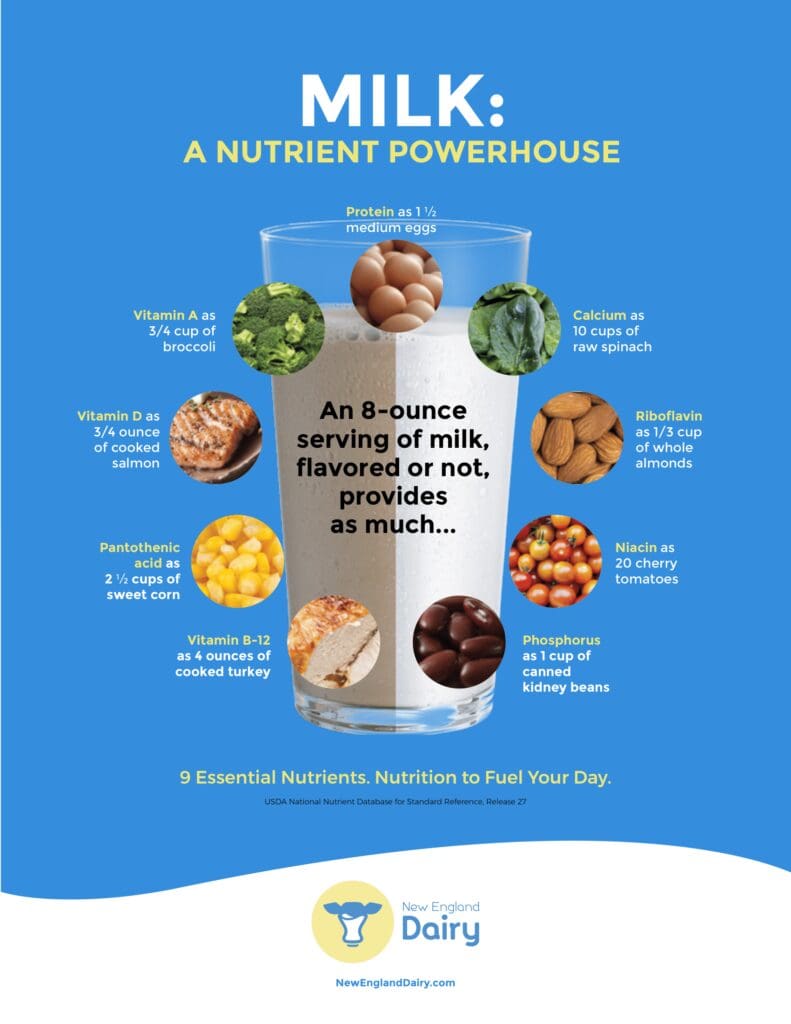
You can count on cow’s milk to have a consistent composition as reflected in its standard of identity. Whether it’s fat-free, low fat, lactose free or flavored, the Food and Drug Administration standards mandate that cow’s milk is not only safe to drink, but that it contains the same nine essential nutrients every time, in every brand, from every store. No such standards exist for plant-based alternatives.
This article by the American Academy of Pediatrics recommends parents carefully check the labels of plant-based alternatives because the amount of protein, calories and the vitamin content may vary between brands.
3) has just three simple ingredients
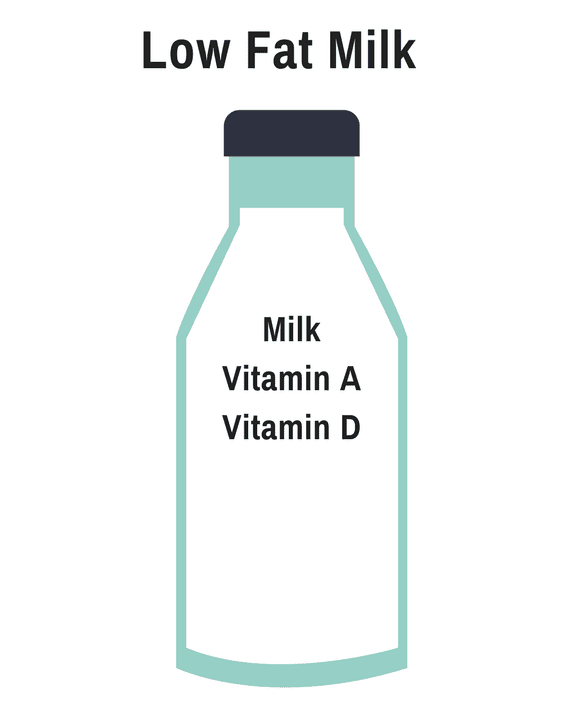
Plain cow’s milk contains only three ingredients: milk and added vitamins A and D – pure and simple. Plant-based alternatives typically include 10 or more added ingredients which could include salt, stabilizers, syrups, thickeners, and sugar.
4) has high-quality protein
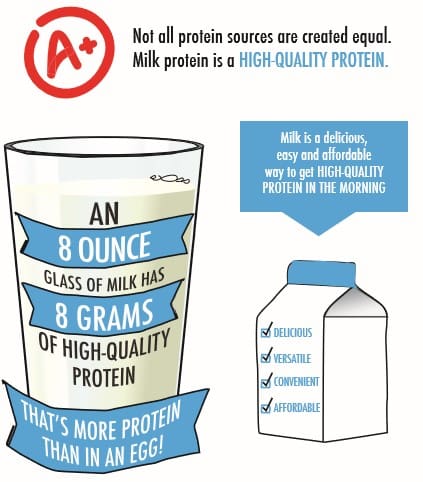
Milk provides 8 grams of naturally occurring high-quality protein per cup (more than a hard-boiled egg). The protein in milk is complete, meaning it provides all of the essential building blocks for muscle development and repair, proper immune function, and many other important processes essential for good health. Plant-based proteins are not complete, and many have 1 gram of protein or less for the same serving size.
5) is local!
Did you know it only takes approximately 48 hours for milk to get from your local dairy farm to your grocery store’s dairy case? Plant-based alternatives cannot compare to the freshness of cow’s milk.

6) costs less per glass than the alternatives
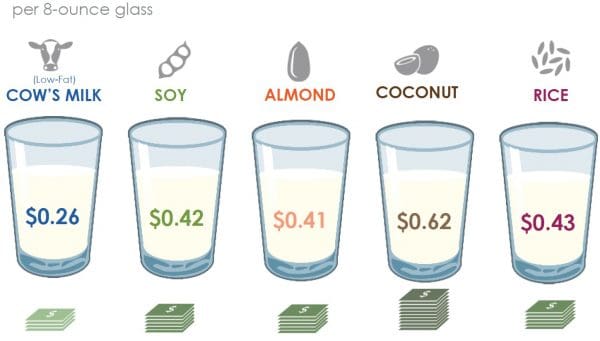
At only $.261 or less per cup, cow’s milk is a nutritious bargain and a great return on investment. Most plant-based alternatives are twice the cost of real milk, at an average price of $.40 per cup. Few foods deliver real milk’s powerhouse of nutrients in such an affordable, appealing, and readily available way.
7) touts many health benefits
The 2015-2020 Dietary Guidelines for Americans recognize growing evidence that shows milk and dairy products linked to improved bone health (especially in children and adolescents), a reduced risk of cardiovascular disease and type 2 diabetes, as well as lower blood pressure in adults.2
Substituting another beverage for milk can lead to gaps in calcium and other key nutrients like high-quality protein, phosphorus, and B vitamins. Nutrients you need to stay healthy and nutrients children need to grow.
There’s just no equivalent substitute for cow’s milk, which is nutrient-rich and wholesome. Keep this and the above in mind that next time you visit the dairy aisle.
References:
1 Based on gallon volume equivalents per IRI DMI Custom Database Data for 2014 (Jan-Dec) –National Average (Cow’s milk based on conventional white milk)
2 U.S. Department of Agriculture and U.S. Department of Health and Human Services. Dietary Guidelines for Americans, 2010. 7th Edition, Washington, DC: U.S. Government Printing Office, December 2010.
Originally published April 2018. Updated February 2020.



